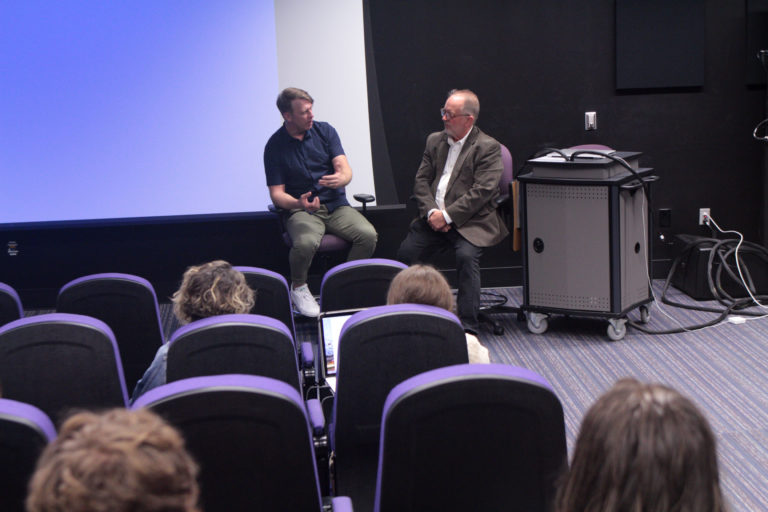by Jana Wiersema, Staff Writer
Two weeks ago, over 40 speakers engaged in the Q Conference in Nashville, Tenn., according to the event’s site. Every year, the same organization also has its Q Commons simulcast in about 150 select locations both nationwide and globally, according to Q Ideas founder and recent chapel speaker Gabe Lyons. But if you’re worried about not being able to find a location near you, don’t worry—Q Ideas could be coming to Asbury University in the fall. In a Q & A session for Engaging Culture Weekend, Dan Lewis, Asbury adjunct faculty member and president of the River Foundation, stated that Asbury University hopes to be selected as one of the host campuses for the 2018 Q Union on Oct. 25.
“On that particular night, there’ll be a two-hour event,” Lyons explained, “where three student leaders give three nine-minute talks, and they’re selected by leadership of the school, on a topic that needs to be discussed on this campus, a cultural issue, a social issue. And we help coach them on how to deliver that talk, and then they combine in with three national presenters which we simulcast in.” He added that the event would launch a chapter on Asbury’s campus where students would convene monthly to watch videos of Q talks and discuss the corresponding issues afterward.
But what is Q Ideas, exactly? The organization site states that it was created to be “a place where church and cultural leaders could come together to collaborate and explore ideas about how the Gospel can be expressed within our cultural context.” It also stated that it explores topics through “small group curriculum, essays, videos, blog articles, and podcasts.”
Lyons said in an interview that the annual Q Conference is often “the main genesis” for topics and themes that Q Ideas produces content about over the next year. He noted that this year’s conference included discussions on the #MeToo movement, sexual harassment, gender equality in the workplace, race and reconcilation—and, regarding the latter topic, reparation.
When asked at the Q & A about movies that have influenced him, Lyons stated that he has noticed reparation as a theme in recent movies—a recurring message that “we need to repair the sins of the past to move forward.”
“The way forward is going to be, not just trying to go forward, but actually looking back into instances of racism and white supremacy,” Lyons said. He added that this needs to involve the church assessing its involvement in racism, repenting of those actions and leading the way in reparation.
To Lyons, confronting the past is an essential part of moving forward. In his chapel talk, he said that God can use the pain of a person’s past not only to redeem and renew that person but also to impact others, to help “others through that same brokenness.”
When asked in an interview what advice he’d give to students who are searching for their calling, Lyons said that it’s important to recognize that God doesn’t always use your skills alone to lead you down the right path; he might also use painful experiences to point you in the right direction.
“[It’s] also discovering the burden he’s put in your heart,” Lyons said, “the thing that maybe wakes you up at night, or it’s an injustice in the world that frustrates you, or it’s an area of an industry where you just realize things could be better, things aren’t the way they ought to be. All of that starts to play into you discovering what it is you might do.”




